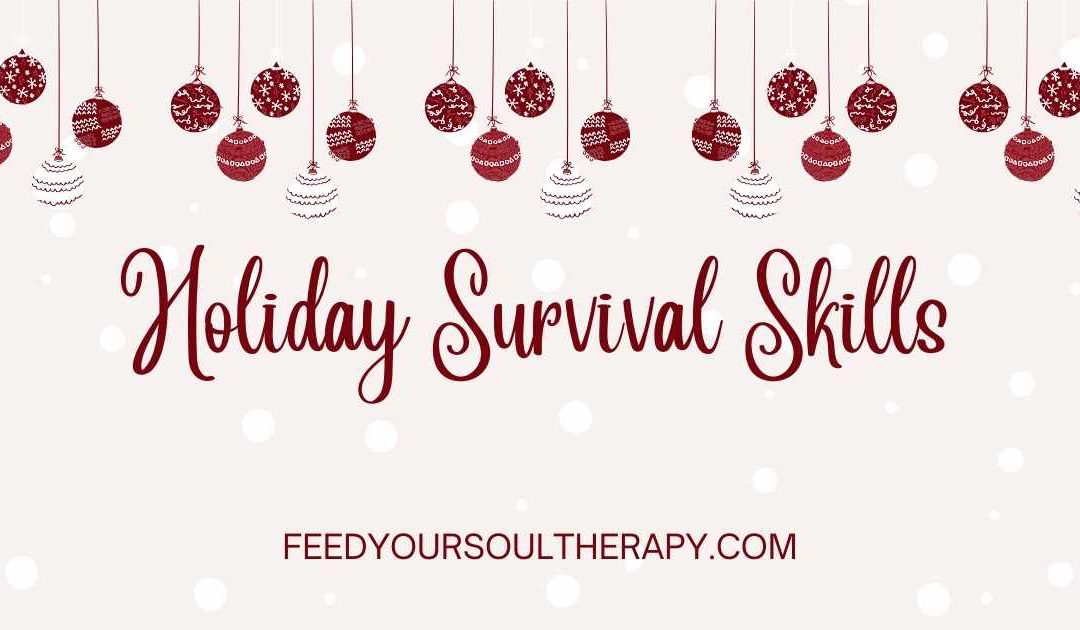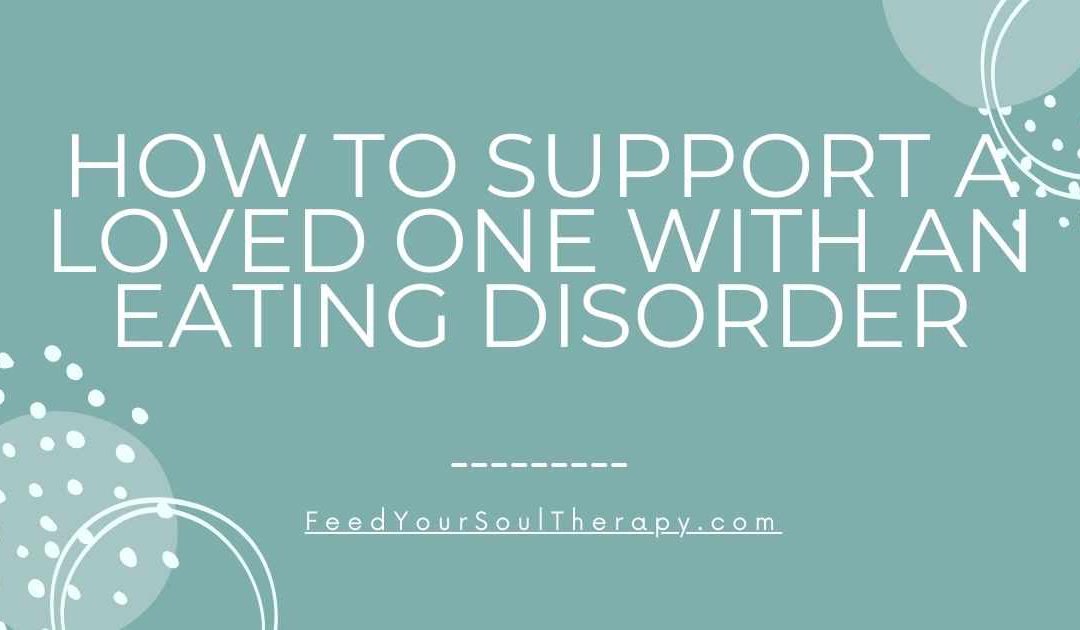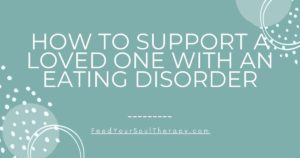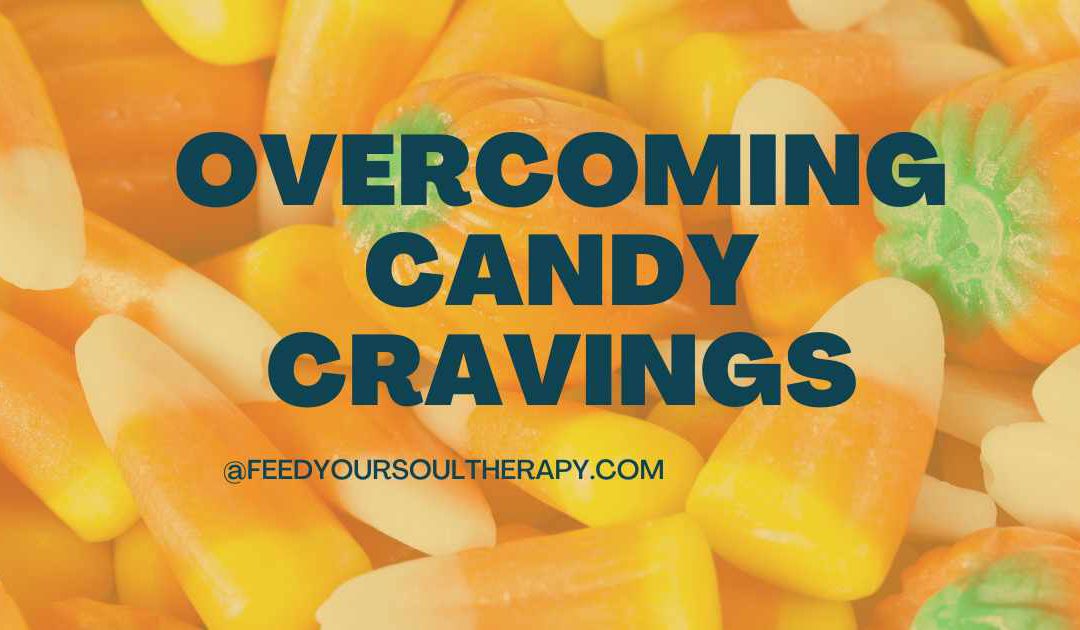
by KimMcLaughlin | Jul 29, 2025 | Wellness





When people think of confidence, they often imagine someone walking into a room with charisma, standing tall, speaking clearly, and seemingly not caring what others think. But the truth is, confidence is much deeper and more personal than outward appearances.
In a recent episode of the Feed Your Soul with Kim podcast, I sat down again with my longtime friend and confidence coach Erin Sum. Erin was my very first podcast guest back in 2019 (Episode 24), and we had a powerful conversation then about how to build confidence. This time, we went even deeper, because confidence isn’t a one-time achievement. It’s an evolving, ever-expanding journey.
If you’ve ever struggled with self-doubt, perfectionism, or that inner voice telling you “you’re not good enough,” we got you.
From Shy to Confident: Erin’s Story
Erin shared a vulnerable and inspiring story about how her confidence journey began. As someone who once identified as extremely shy, she never imagined she would one day speak on stages or coach others to embrace their power.
Her turning point??? She joined Passion Parties — an in-home party company selling relationship-enhancing products. Erin had to speak in front of groups, lead events, and sell products that made most people blush. It was uncomfortable, bold, and totally transformative.
“That was a massive leap outside my comfort zone,” she said. “But I knew I was here to make a difference. I just didn’t know how to do it until I took that step.”
This leap set off a chain reaction that led her to discover life coaching, eventually becoming a full-time confidence transformation coach.
Isn’t Shyness and Confidence the Same Thing?
One of the most fascinating parts of our discussion was around the connection between shyness and confidence. Are they always linked?
Erin believes that, in many cases, they are.
“Shyness often means we’re shrinking ourselves, holding back from being who we really are,” she explained. “It’s not just about being quiet — it’s about hiding your light.”
That doesn’t mean every quiet person lacks confidence. But when shyness is rooted in fear of being seen or judged, it can be a signal to look inward and ask:
- What am I holding back?
- Why am I afraid to be fully seen?
- What is the worst that could happen if I am seen?
5 Hidden Signs You Might Be Lacking Confidence
Low self-confidence can show up in sneaky ways. Erin and I discussed several phrases and habits that people don’t always associate with confidence, but which are clear signals:
- “I don’t deserve that.”
Whether it’s a compliment, a raise, or a relationship, feeling unworthy is a hallmark of low confidence.
- Second-guessing yourself constantly.
If you can’t decide without spinning your wheels, it’s often rooted in self-doubt.
Putting things off because you fear failure or judgment? That’s confidence hiding in the shadows.
The need to “get it right” before acting can paralyze you — more on that later.- Not taking action.
Inaction isn’t laziness! It’s often fear disguised as hesitation.
Confidence is a Practice, Not a Destination
One of the most empowering ideas Erin shared was this:
“The more confident you become, the more those limiting beliefs fade away. But they come back- just at a different level.”
There’s a saying: “New level, new devil.” Erin offered a twist: “New level, old devil,” because often, the same fears resurface, just in new disguises.
Maybe you’ve conquered public speaking in small groups, but now you’re afraid to speak at a conference. Or you’ve built a business, but now you’re scared to raise your rates.
That’s not failure. That’s growth.
Really, confidence work is never really “done.” It evolves with you.
Let’s Talk About Perfectionism
Oh, perfectionism: the enemy of creativity, progress, and peace of mind.
Both Erin and I admitted that we’ve fallen into the perfectionism trap. As a Virgo and an only child, Erin joked she was “triple-whammied” with the perfectionism gene.
“I used to spend so much time perfecting a web page or writing,” she said. “Eventually, I had to accept it was never going to be perfect.”
Her favorite mantra (which I now use regularly) is from our mutual mentor, Caterina Rando:
“Done is better than perfect.”
It sounds simple, but it’s a game-changer. Every time I remind myself of this, I can move forward even when things feel messy.
If you’ve ever held back because you couldn’t get something just right, you’re not alone and that’s perfectionism at work.
Haters are Helpful!!!
This might surprise you: one of the biggest confidence boosts Erin ever experienced came from getting her first “hater.”
Yep, someone in her community tore her down publicly. Instead of shrinking, Erin celebrated. She even made a video that night (in her hoodie, no makeup, 9 p.m.) and said:
“Getting a hater means I’ve made it. It means I’m standing for something.”
That video became her most-watched video ever.
Here’s why this matters: If you put yourself out there, people will criticize. Some might even try to tear you down. That’s not a sign to stop — it’s a sign that you’re being bold.
Truth bomb: The people who truly care about you don’t need you to be perfect. And the people who demand perfection? They’re not your people.
Small but Powerful Ways to Build Confidence
So how do we build confidence? Especially if we feel stuck, scared, or deeply self-critical?
Erin offered four simple but powerful steps:
- Ask yourself: What am I afraid of?
Often, naming the fear is enough to take away its power. We tend to exaggerate what might go wrong.
- What’s the worst-case scenario?
Be honest. If you speak up in a meeting, what’s the actual worst that could happen? Usually, it’s not nearly as bad as your brain makes it out to be.
- How would I act if I felt confident and bold?
Imagine your future self, the one who’s already living confidently. What would they do right now?
- Take one small step.
Not a leap. Just a step.
- Send that email.
- Make that call.
- Speak one sentence
Confidence grows with action, not waiting.
Confidence in Real Life: What It Looks Like
Let me share a personal story: I recently had to attend a networking event. As someone who often helps others navigate fear and discomfort, people assume it’s easy for me. It’s not.
I had to sit myself down and say:
“Kim, just go. Show up as you are. You’ll find your people there.”
And I did. I had conversations that mattered.
The fear beforehand was real.
I had to lean on my confidence tools just like you do.
Confidence doesn’t mean fear is gone. It means you show up anyway.
The Power of Community
One of the most underestimated parts of building confidence is community.
Erin and I both emphasized how important it is to surround yourself with people who:
- Celebrate your growth
- Encourage your bold steps
- Support you when fear shows up
If you don’t have those people in your life yet, seek them out. Join a group. Hire a coach. Talk to a therapist. We are not meant to do this alone.
Self-Reflection: Confidence Check-In
Here are a few journal prompts to help you integrate what you’ve read:
- Where in your life are you currently holding back?
- What fear is underneath that hesitation?
- How would you act if you believed in yourself just 10% more?
- Who in your life encourages your confidence — and who drains it?
- What’s one bold (but manageable) action you can take this week?
Finally, You Deserve to Shine
Confidence isn’t about being loud, being “perfect,” or having it all figured out.
It’s about:
- Trustingyourself, even when you’re unsure.
- Showing up, even when you’re scared.
- Acting, even when you’re doubting.
- Believing, even when you feel shaky.
If you’re struggling with low confidence right now, take a breath. You’re not alone, and you’re not broken. Confidence isn’t something you either have or don’t — it’s something you build. One small, brave action at a time.
Erin and I are living proof of that.
So today, ask yourself:
✨ What would I do if I trusted myself just a little more?
Now go do that.
Want more?
🎧 Listen to the full Feed Your Soul with Kim podcast episode #123 “Beyond Confidence” with Erin Sum. https://podcasts.apple.com/us/podcast/123-beyond-confidence/id1473042304?i=1000717437412
🌀 Subscribe to hear more stories, insights, and practical tools for emotional well-being, confidence, and empowerment. https://podcasts.apple.com/us/podcast/feed-your-soul-with-kim/id1473042304
You’ve got this — and we’ve got you.
Disclaimer: This blog is not a replacement for mental health counseling. If you are suffering, seek out a qualified mental health provider. You are worth it!!!
Kim McLaughlin, MA is a Psychotherapist, Speaker, Author, and Coach who helps people literally feel better in their lives.
She specializes in providing therapy for people who suffer from binge eating and emotional eating. She is a Certified Intuitive Eating Counselor. She is the author of the best-selling book Feed Your Soul Nourish Your Life! A Six Step System to Peace with Food and the Amazon #1 Best Selling book Discovery Your Inspiration.
You can find Kim on her podcast Feed Your Soul with Kim and you can find it on all podcast platforms.
Wondering if you are an emotional eater? Sign up for the free Am I an Emotional Eater Quiz.
Erin Summ is a Confidence Coach. You can find out more about her on her website- https://erinsumm.com/
Check out her Bold Confident Speaker Series: https://erinsumm.com/empoweredwoman-speakerseries/

by KimMcLaughlin | May 12, 2025 | Mental Health, Self Care




As a psychotherapist, I listen to people talk daily about how much they dislike or even hate themselves. I am not surprised by the comments and through the therapeutic process we ultimately focus on how to create more self-love.
When we discuss love, it starts out with the love of others: spouse, partner, family, and children.
I say love starts with yourself and I know this goes against what we have been taught.
We are taught to be loving to others and to put them first.
As they say when you ride an airplane the oxygen mask needs to go on YOURSELF first.
You can see there are mixed messages about love and why there is a requirement for self-love.
There is a blueprint to self-love that you might not know.
Let’s start with the definition of a blueprint: “a guide for making something — it’s a design or pattern that can be followed.”
Since we have generally not been taught about self-love, I want to go over the blueprints.
Yes, there is a guide for enabling self-love.
First, what is self-love?
I wrote a whole chapter about Self-Love in my book: Feed Your Soul; Nourish Your Body! A Six Step System to Peace with Food.
Self-Love is one important component in making peace with food. When you have food issues, we begin to think so negatively about ourselves. Focusing time and effort on self-love helps with food issues AND it helps with a lot of other issues you might have.
In my book I wrote a whole chapter about self-love. The book focuses on making peace with food, so you might think this topic does not apply to you (you might not have an issue with food).
Women especially are taught to not pay attention to their own needs.
Being loving is not always present in our society today. There is a lot of negativity all around. I noticed so much more negativity with the rise of the internet and the rise of unfiltered comments.
Isn’t self-love selfish?
We are primed to not value being loving to ourselves, and it can be considered selfish. We often tend to overlook self-love for fear of being selfish. As I stated above, self-love is the most important kind of love.
I see a common misconception is that self-love means you are selfish and self-centered. When you look at it that was you are missing the need for each of us to focus on our own needs and once we can take care of our own needs (hence the mask on the plane) then we can look to help with others needs.
Why is self-love so important?
There are different aspects to consider at when we look at Self-Love:
- Self-Esteem- which is how you feel about yourself. Your sense of value and good feelings about yourself.
- Self-Worth- which is how you see your value in the world. Do you think you have the right to exist? This is such a difficult concept, especially when we have food and weight issues.
- Self-Expression- how do you go about with how you individually express who you are verbally, what you wear, what you do, etc.
When we are in alignment with our self-esteem, self-worth, and self-expression- it is easier to love ourselves.
Many of us tend to feel stuck in the negativity. Without self-love there is not a way out of this spiral downward.
If you can do one thing for yourself to help your emotional and mental wellness, increase your self-love.
There is a blueprint to engage in self-love.
Here are some practical ways to increase self-love
1) Start and end the day by saying something positive to yourself.
This sets up your mind and spirit for the positive. You can do it more often during the day for a greater benefit. I love books by Louise Hay who has a mirror method where she would look at herself in the mirror and repeat positive affirmations. It is a powerful method.
Here are some positive statements to tell yourself:
- I love you.
- I appreciate you.
- I care for you.
- You are valuable.
It is very powerful to repeat those affirmations in front of the mirror while you look at yourself.
In one of my yoga classes my yoga instructor has us tell ourselves. “I love you” at the end of the class.
Telling yourself, I Love You, out loud is a powerful way to reinforce that self-love.
2) Stop judgment of yourself and others.
This can be easier said than done. I find the starting point is to notice the judgment and name it. Call it judgment. This can help you notice it when it is happening. It is not a time to get angry or frustrated with yourself, it is a time to recognize it AND wonder what it means to you.
- Why am I judging?

- What does the judgment mean?
- How can I release this judgment?
There is a lot of danger in comparing ourselves to others. If it is not uplifting and it brings you down. It does not matter what anyone else does if it is uplifting to you.
3) Be at peace in your mind.
How do you think about yourself? How much to you ruminate on what is going wrong and what is bad? Critical thoughts of yourself and others.
Peace can come in so many ways- I like to journal those thoughts; I like conscious journaling (morning pages) which frees my mind daily from all the chaos.
4) Say no to people, places, and things you need to say no to.
Is there chaos around you? People who are not kind to you? Self-love means I invite people to be with me that are kind and loving to me.
I can be more loving to myself when I surround myself with loving people. Remember before when we talked about the negativity on the internet and especially social media. Consider saying no to negative people who fill your feed with toxic statements. I have let go of many people on social media who just talk cruelly about others. I think it is ok to hear other opinions on social media, but not toxic statements.
5) Notice the negative statements you make about yourself.
Consider how you would talk to your child, niece, or nephew- a cherished child. Think of yourself as that cherished child. Tell that child side of yourself how great they are.
This blueprint is not an exhaustive list, and I invite you to add to the list.
Finding what works for you one day does not always work for another day.
Lastly, if these suggestions feel too difficult it might be time to seek out a licensed mental health counselor. A counselor can help you to look at yourself differently and then you will feel different about yourself.
 Kim McLaughlin, MA is a Counselor, Speaker, Podcaster, and Inspirational Coach who specializes in working with people who suffer from binge eating and emotional eating. She is a Certified Intuitive Eating Counselor. She is the author of the book Feed Your Soul Nourish Your Life! A Six Step System to Peace with Food and the Amazon #1 Best Selling book Discovery Your Inspiration.
Kim McLaughlin, MA is a Counselor, Speaker, Podcaster, and Inspirational Coach who specializes in working with people who suffer from binge eating and emotional eating. She is a Certified Intuitive Eating Counselor. She is the author of the book Feed Your Soul Nourish Your Life! A Six Step System to Peace with Food and the Amazon #1 Best Selling book Discovery Your Inspiration.
You can hear Kim talk more on this topic on her podcast Feed Your Soul with Kim and you can find it on all podcast platforms.
Wondering if you are an emotional eater? Sign up for the free Am I an Emotional Eater Quiz.

by KimMcLaughlin | Dec 17, 2024 | Eating Disorders, Holidays





Holiday survival skills are in demand as we navigate the busy and often stressful season.
Popular strategies being shared this year focus on maintaining physical health, managing emotions, and balancing social dynamics:
There are a lot of stressors whether you feel busy or not.
First, when we look at how to survive over the holidays determine how you will take care of your body.
Everyone knows it is important to take care of your body and that it can become complicated over the holiday season.
Here are some strategies to take care of your body this holiday season.
- Stay active in a way that works for you. Since it is the time of year when it is darker earlier, consider what activities you need to keep your body feeling good.
- Eat foodsthat work with your body. I like asking the question, what is your right food. Wonder to yourself if this food will give you the energy to do the things you need to do.
- Notice if you tend to try to restrict what you want to eat. This restriction can have the opposite effect and lead you towards binge eating. Recognizing there are special foods for this time of year can help you have the holiday foods that you want to have.
- Are you sleeping well or enough? Sleep is critical to your overall health. This time of year, we can have a varied sleep schedule due to activities. Look at how you can get your right amount of sleep.
Second, making sure you are focused on YOUR mental health and emotional wellness is a key to holiday survival.
The busy atmosphere can make us tend to override our mental health and emotional needs.
Try some strategies to help with keeping your emotional needs in mind.
- Acknowledging and addressing holiday-specific challenges, such as loneliness, grief, or dealing with family conflicts, can help maintain emotional well-being. These emotions can take a hold of us and affect how to maintain our balance.
- Try techniques like setting boundaries, practicing gratitude, or taking some space from others when you feel out of balance.
- If you feel too overwhelmed, seeking therapy can be helpful. Look for a qualified mental health therapist to help you if you are feeling down.
Third, evaluate what stress management skills you need for yourself this holiday season.
Here are some key tools to distress.
- Is your schedule overloaded? Try decluttering your schedule. What is your intention for this holiday season? What do YOU want to accomplish: rest, connecting with special people, taking a trip, or being active are some of the questions you can ask yourself.
- Evaluating what you need to let go of in your schedule can be valuable. You have permission to say no to people and activities that do not serve you this holiday.
- Prioritize your self-care can be life affirming. Ask yourself the question, what would bring me peace. What do you need to do for YOU? I ask myself these questions to help me practice more self-care.
- What is it you would like to do? Do you have a list of what you want to do this holiday season? I like using my Holiday Bucket list to determine my priorities
I write out my Holiday Bucket List every year. This is my list of what I want to do over the holiday season.
What are the things this holiday that you want to do? Here are some questions to guide you in the right direction.
- What foods you want to have?
- What foods do you want to make?
- What kind of activities would you like to do?
- Where would you like to go?
- What decorations do you want to put up.
- Do you desire some rest or more activities?
- What are crafts/decorating that bring you joy.
- Where would you like to go over this holiday season?
- What does this season mean to you and how can you embrace that?
- What are your spiritual needs? What can you do to support your spiritual needs.
I find it is helpful to take my list and put it in on my calendar.
Lastly look at the social and family dynamics playing out around you.
Determine what YOU need for yourself and preparing to ask for what you need can be critical.
- If you must manage challenging conversations- this can be the time to practice boundaries. I like coming up with my plan before the difficult conversation happens.
- Navigating differing values within families can be a concern over the holidays. It can be helpful to prepare your response to intrusive questions.
- I like planning neutral; inclusive activities can make gatherings smoother and there is less time for inappropriate statements from others.
- I like to pivot the conversation away from challenging topics, so I have some non-controversial topics prepared: weather, vacations, or sports.
- Being prepared to say, I don’t want to talk about this, is valuable. You can practice what you will say in advance. I like to ask the person bringing up a controversial topic- Why are you bringing this up? What is your intention? This helps you understand where they are coming from and set some limits.
- Who do you really want to spend time with? Who are the right people to spend time with? You deserve to spend time with people that are pleasant and enjoyable.
I encourage you to set yourself up for success. You are worthy of an enjoyable holiday.
Make this your time to connect with yourself and others that you truly care about.
Check out the Feed Your Soul with Kim Podcast where we talk about Holiday Survival Skills.
Kim McLaughlin, MA is a Psychotherapist, Speaker, Author, and Coach who specializes in working with people who suffer from binge eating and emotional eating. She is a Certified Intuitive Eating Counselor. She is the author of the best-selling book Feed Your Soul Nourish Your Life! A Six Step System to Peace with Food and the Amazon #1 Best Selling book Discovery Your Inspiration.
You can find Kim on her podcast Feed Your Soul with Kim and you can find it on all podcast platforms.
Wondering if you are an emotional eater? Sign up for the free Am I an Emotional Eater Quiz.

by KimMcLaughlin | Nov 15, 2024 | Eating Disorders, Mental Health





Eating disorders can be frustrating for loved ones to deal with.
Like schizophrenia and heart disease, eating disorders have a biological, psychological, and social component.
- Biologically, each has a genetic component and can run in families.
- Psychologically, they each are associated with other mental health factors.
- Socially, each has a history of stigma and public oppression.
Without treatment, eating disorder symptoms, like schizophrenia and heart disease, can progress over time. Each can cause long-term physical and psychological damage, if they are not addressed.
Comorbidity (the presence of 2 or more conditions) exists between eating disorder and other mental health conditions like anxiety, depression, obsessive-compulsive disorder or ADHD. There is a similar comorbidity with schizophrenia and substance use disorders and depression. Also, heart disease can coexist with depression and anxiety.
Therefore, overlapping diagnoses make treatment complex, because it often involves addressing multiple interrelated mental and physical health issues.
We know environmental factors like stress, trauma, and lifestyle can intensify symptoms of both schizophrenia and heart disease.
Eating disorders are also heavily influenced by societal pressures, stress and trauma.
Societal factors like body image ideals or personal trauma can act as triggers for disordered eating, just as stress or lifestyles can exacerbate schizophrenia and heart disease.
Eating disorders, like schizophrenia and heart disease, are often misunderstood by the public.
People can view them (eating disorders, schizophrenia, and heart disease) as something the person brought on themselves and as a function of moral failing where they have not “tried hard enough” to get better. This stigma is in large part the reason people do not want to seek help.
Often people will say, “why can’t you just control yourself and your eating.”
Treating eating disorders often requires a multidisciplinary approach, including medical, psychological, and nutritional treatment. Similarly, management of schizophrenia or heart disease requires a combination of medication, mental health therapy, family and lifestyle changes.
Eating disorders, like schizophrenia and heart disease are treatable (there is hope) it needs understanding treatment providers to assist the person to get better.
Since Eating Disorders are so complicated, how can you support a loved one who is struggling with an eating disorder?
First, you do not have to respond perfectly to your loved one with an eating disorder each time. Give yourself grace to not respond and forgive yourself for what you might have said and done in the past.
You are probably scared your loved one might die or be incapacitated. Your fear makes sense. It is hard to support someone who has an eating disorder, especially when you do not understand it.
I have talked to many loved ones who genuinely feel great love but feel frustrated that the person is not stopping their behavior. I empathize with your situation, and I can honestly say that letting go of your anger can be so helpful to you and your loved one.
Second, increase your constructive and positive communication skills.
This can be easier said than done when it is YOUR loved one that you must interact with. There are many communication skills that can help you.
Try to refrain from judgment.
Seek to understand where they are coming from. Move away from questions and comments that are shaming such as:
- Why did you do that?
- Why don’t you stop?
- What is wrong with you?
- Just eat.
- Don’t eat.
Ask your loved one to help you understand where they are coming from. Let them tell you, not you tell them. A good question is, “I feel confused, can you help me understand.”
When we seek to understand, we can then begin to come from a place of empathy for their situation.
Another great communication skill is active listening, where you listen deeply to what they say. It can be hard to listen when you feel frustrated, and active listening can help decrease the frustration.
Third, seek support for yourself to understand how this is affecting you. It is hard to help someone who has an eating disorder. You have learned a lot from the world about food, weight, and the value of dieting, making it difficult to push aside the societal expectations.
Ask for referrals for a therapist or counselor who can support you in this process.
The professional will be able to help you understand your feelings, thoughts, and reactions. They will be there for you, because when we have a loved one with an eating disorder it seems all the focus is on them. You can also be suffering and deserve a place to feel better.
Fourth, encourage your loved one to seek qualified professional help: a therapist or counselor who is specially trained to work with people with eating disorders.
The suggestion to seek professional help should come from a place of love.
Tell them you love them and are concerned about them.
If the person is talking about the problem, you can suggest they might want to talk to a professional about it. This can be a slow process, and they might say no. That is ok, this is on their timetable, not yours.
If your loved one says no, I encourage a family member to contact a mental health counselor or therapist who specializes in eating disorders to consult. When I, as the therapist, get these types of calls from loved ones, I listen to their situation and give them some non-shaming language to use to encourage the person to make the call.
Fifth, seek out support groups that offer education about eating disorders. Group members can provide their personal experiences about how they handled situations that may spark ideas for you. You can feel isolated being around a loved one with an eating disorder, so seek out others who are trying to eat through an intuitive eating and body positive lens.
Balance between offering support and respecting the autonomy of a loved one with an eating disorder.
There are different ways to respond to a person with an eating disorder based on what the eating disorder is AND how it is affecting their lives. There can be situations where the person is truly in a life-or-death situation. In that instance, work with treatment professionals to determine boundaries to take appropriate and immediate action.
When the eating disorder is not an immediate life-or-death situation, it is important to determine:
- The timing to offer support.
- When you need to give the person the space to make their own decisions.
- If you must set firm limits.
Determining when you offer support and when you respect their autonomy can be something you bring to your own mental health professional or treatment group.
In the end, I want anyone with an eating disorder reading this to know there is hope and there is help. Dealing with eating disorders is complicated and you might feel out of control. The first step can be to admit there is a problem and to ask for help
I know from experience your eating disorder can be treated. There is hope, there is help.
This article was initially published in full in Authority Magazine and Medium.com. Read the full article here: https://medium.com/authority-magazine/kim-mclaughlin-of-lmft-on-how-to-support-a-loved-one-who-is-struggling-with-an-eating-disorder-f5ecd2088ec3
You can find the article video here: https://youtu.be/awGrVXeCCYI
Kim McLaughlin, MA is a Psychotherapist, Speaker, Author, and Coach who specializes in working with people who suffer from binge eating and emotional eating. She is a Certified Intuitive Eating Counselor. She is the author of the best-selling book Feed Your Soul Nourish Your Life! A Six Step System to Peace with Food and the Amazon #1 Best Selling book Discovery Your Inspiration.
You can find Kim on her podcast Feed Your Soul with Kim and you can find it on all podcast platforms.
Wondering if you are an emotional eater? Sign up for the free Am I an Emotional Eater Quiz.

by KimMcLaughlin | Oct 31, 2024 | Binge eating, Holidays




Halloween used to be a tricky time for me, because of all the candy. I was always afraid I would overeat, gain weight and hate myself for it.
The aisles of colorful candy were hard for me to ignore, and my strategies for “managing” my candy intake became more elaborate each year.
If you’ve ever struggled with balancing holiday treats and Halloween candy, my story might sound familiar.
I transformed my mindset around candy—and you can too.
For years, I cycled through various strategies to avoid Halloween candy temptations:
- I bought candy and tried not to eat it!!!
The tactic of not buying candy never worked as planned! I’d buy a stash and vow to leave it alone until Halloween. Inevitably, I’d sneak a piece here and there until I had to replenish it. I would constantly think about the candy and feel compelled to eat it.
- I tried not buying candy at all.
My next strategy was to avoid buying it altogether. This strategy worked, because it was not in my house. I felt uncomfortable because I was avoiding dealing with candy. I wanted to feel comfortable with candy around AND not eat it all.
- Avoiding Trick-or-Treaters was one of my interesting plans.
For years I would go to the gym on Halloween night to avoid being home when trick-or-treaters came by. If I got home while they were still out, I would hide in my bedroom and keep all the lights off. I feared Halloween for all of the wrong reasons.
- Escaping to a Friend’s House
Some years. I would go to my friend’s house for the night to skip the candy stress. I thought if I just avoided the candy, I would be ok.
My husband LOVES to give out Halloween Candy.
I realized while I was dating my husband that he loves giving out Halloween candy to neighborhood kids.
Since he gave out candy and it was in the house, I realized I needed to come up with a different plan.
Next, when my daughter arrived, I knew it was time for a real change.
I found Intuitive Eating is the key component to heal my relationship with Halloween Candy.
Intuitive Eating showed me that food doesn’t have to be the enemy. I didn’t have to “manage” or “control” candy or any other foods. This idea was incredibly freeing, though it took some time to fully embrace.
Key Lessons in My Food Freedom Journey
There some components to help you understand how to use Intuitive Eating.
First, candy isn’t the enemy.
Realizing that there are no “bad” foods—even candy—was huge for me. Halloween candy wasn’t going to harm me, and I didn’t need to label it as something forbidden. When I take candy off of the “bad” list, it does not have power over me.
Second, fear and candy don’t have to go together.
Candy used to scare me because I feared losing control, gaining weight, or somehow “failing” my health goals. By letting go of these fears, I allowed myself to see candy as just candy. If I feel the fear, I focus on dealing with the fear NOT the candy.
Third, allowing myself to enjoy Halloween Candy.
Since I give myself permission to eat candy whenever I felt like it, removed its power over me. It was no longer a “special” or “forbidden” treat. It was just a choice, like any other. I have allowed myself to have candy throughout the year and it is not something special to be binged on at Halloween.
How you can begin your Own Journey Toward Candy Freedom???
If you’re working to make peace with candy (or any food), try these steps:
1. Challenge your thoughts about Halloween candy.
You can reflect on why candy feels scary.
- Are you worried about weight gain?
- Concerned about feeling out of control?
- Do you fear “unhealthy” eating?
I like to notice the emotions and thoughts that come up and journal about them. Through the journalling process, I can determine what the feels really mean to me. Once I can see/feel the feelings and determine what I need, then candy is not all powerful.
2. Explore your beliefs around candy
- What messages have you received about candy?
- Do you associate it with guilt?
- Question where these ideas came from and whether they still serve you.
As you explore your beliefs about candy you can see if they are true or not.
If you were approaching candy with kindness rather than fear, what would that look like? Remember, self-restriction doesn’t work in the long term. True balance means allowing yourself to have candy without guilt.
When you choose to eat candy, do it mindfully.
- Savor the taste of the candy.
- Enjoy the experience of the Halloween candy.
- Do you like the taste?
- Is there a point where it does not taste good anymore?
You might find that, over time, candy becomes far less of a big deal.
Now, I happily give out candy to our neighborhood kids. When my daughter returns with her Halloween haul, I can share a piece without the slightest worry.
Candy is just another food, and Halloween is just one day.
If you’re tired of feeling out of control around candy, know that there’s hope. You, too, can find food freedom. By rethinking your relationship with candy, you can make Halloween (and every day) a little sweeter. 🎃🍬
Kim McLaughlin, MA is a Psychotherapist, Speaker, Author, and Coach who specializes in working with people who suffer from binge eating and emotional eating. She is a Certified Intuitive Eating Counselor. She is the author of the best-selling book Feed Your Soul Nourish Your Life! A Six Step System to Peace with Food and the Amazon #1 Best Selling book Discovery Your Inspiration.
You can find Kim on her podcast Feed Your Soul with Kim and you can find it on all podcast platforms.
Wondering if you are an emotional eater? Sign up for the free Am I an Emotional Eater Quiz.
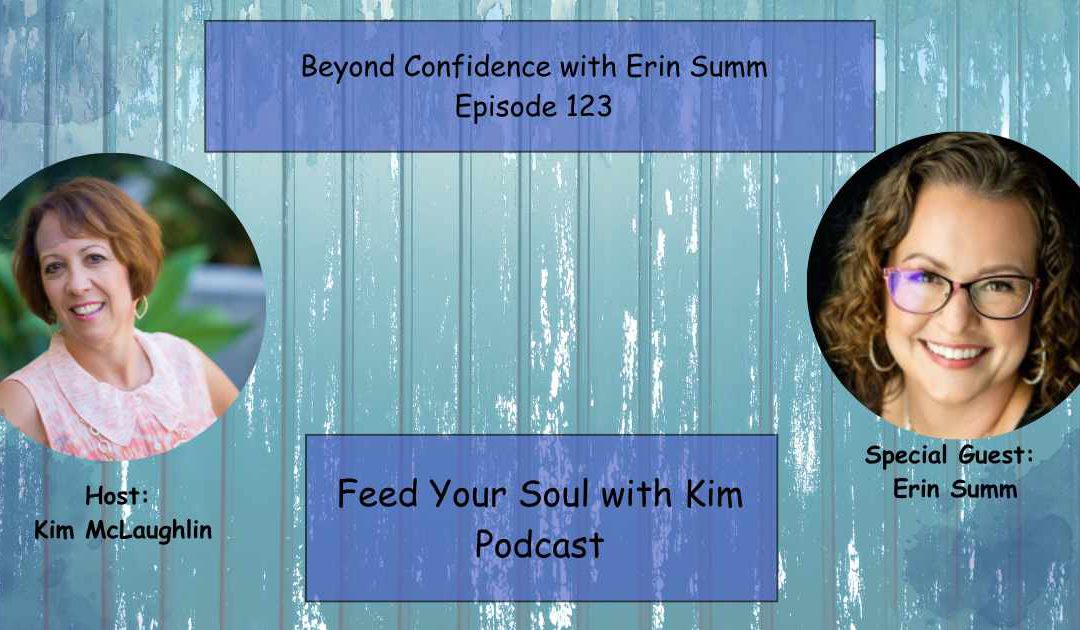




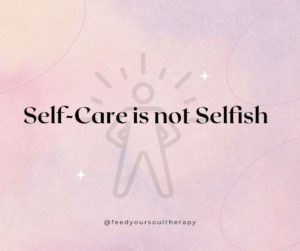
 Kim McLaughlin, MA is a Counselor, Speaker, Podcaster, and Inspirational Coach who specializes in working with people who suffer from binge eating and emotional eating. She is a Certified Intuitive Eating Counselor. She is the author of the book
Kim McLaughlin, MA is a Counselor, Speaker, Podcaster, and Inspirational Coach who specializes in working with people who suffer from binge eating and emotional eating. She is a Certified Intuitive Eating Counselor. She is the author of the book 